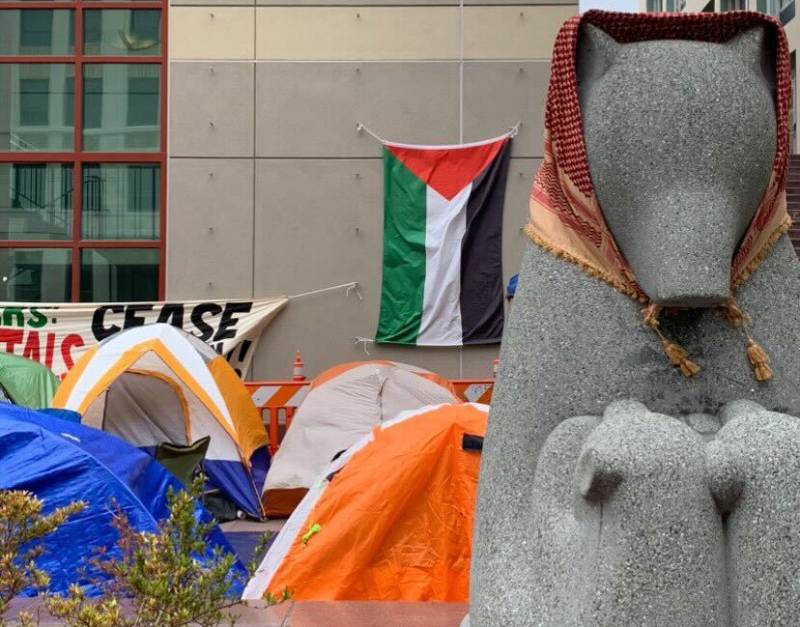“This morning, police told us that they were going to sweep us again if we didn’t take them down,” Hadi said Tuesday. Protestors complied, and removed the tents but remained at the site as of Tuesday afternoon.
The response from administration and campus police has been “repressive,” Hadi said, but many protesters intend to stay.
“As the first graduate health care institution to set up something like this, we need to show up,” Hadi told KQED. “I know we have a lot at stake but we’re hitting a sore spot and we need to keep escalating because the health care infrastructure in Palestine is being — has been — decimated.”
The camp is the latest to spring up at a UC campus, which have now each had a camp protesting the Israeli offensive in Gaza. UCSF’s camp is meant to be in solidarity with those at the other UC campuses and the scores of others at universities across the U.S., said Jess Ghannam, a professor of psychiatry and global health at UCSF.
“We’re part of a very large movement right now that is in line with our free speech and academic freedom rights to speak and to demonstrate,” said Ghannam. “What seems really different about what’s happening now is the intensity of the aggressive response, with lack of negotiation, with lack of any attempt to engage in a discussion about what the demands are.”
The protesters had been informed multiple times prior to Monday’s police action that their camp was in violation of fire codes and the university’s “policies governing expressive activities,” according to a UCSF statement.
An update posted on ucsf4palestine’s Instagram Tuesday said the university has “deep ties and allegiance” to Israel, through partnerships with Israeli-aligned organizations like the Helen Diller Foundation, which has donated at least $1 billion to UCSF, according to its website. The post also listed demands directed at the university’s chancellor including to “divest from all companies, programs, and organizations profiting from and aiding the occupation and genocide.”
A UCSF spokesperson declined to comment on the university’s affiliations.
The post also said protestors were “alarmed” that an “institution that prides itself as a leader in global health would stay silent at the utter destruction of hospitals in Gaza.”
Meanwhile, at the University of San Francisco, administrators gave students a 3 p.m. deadline to voluntarily leave the encampment on Welch Field without facing internal discipline for violating “time, place, and manner restrictions” on protests, university officials wrote to encampment representatives after a meeting Monday.

